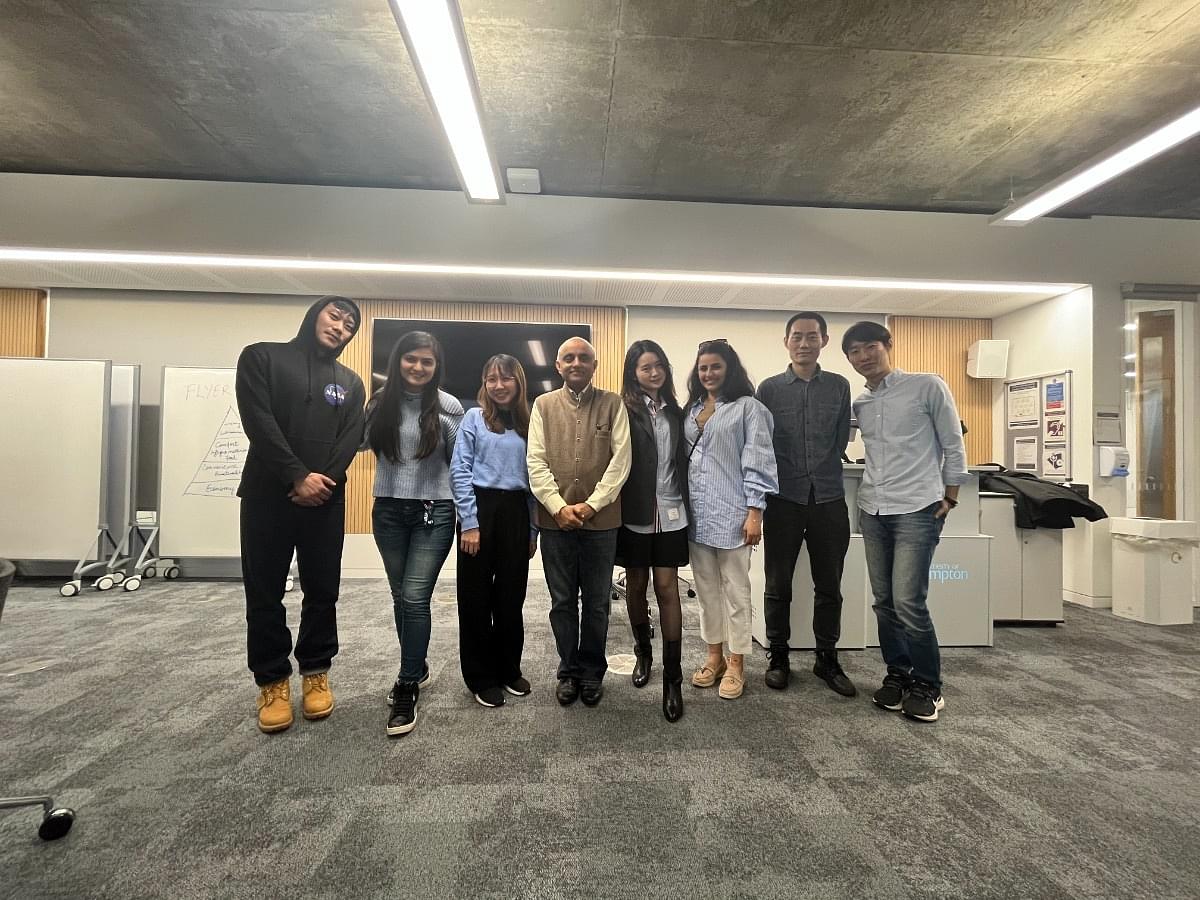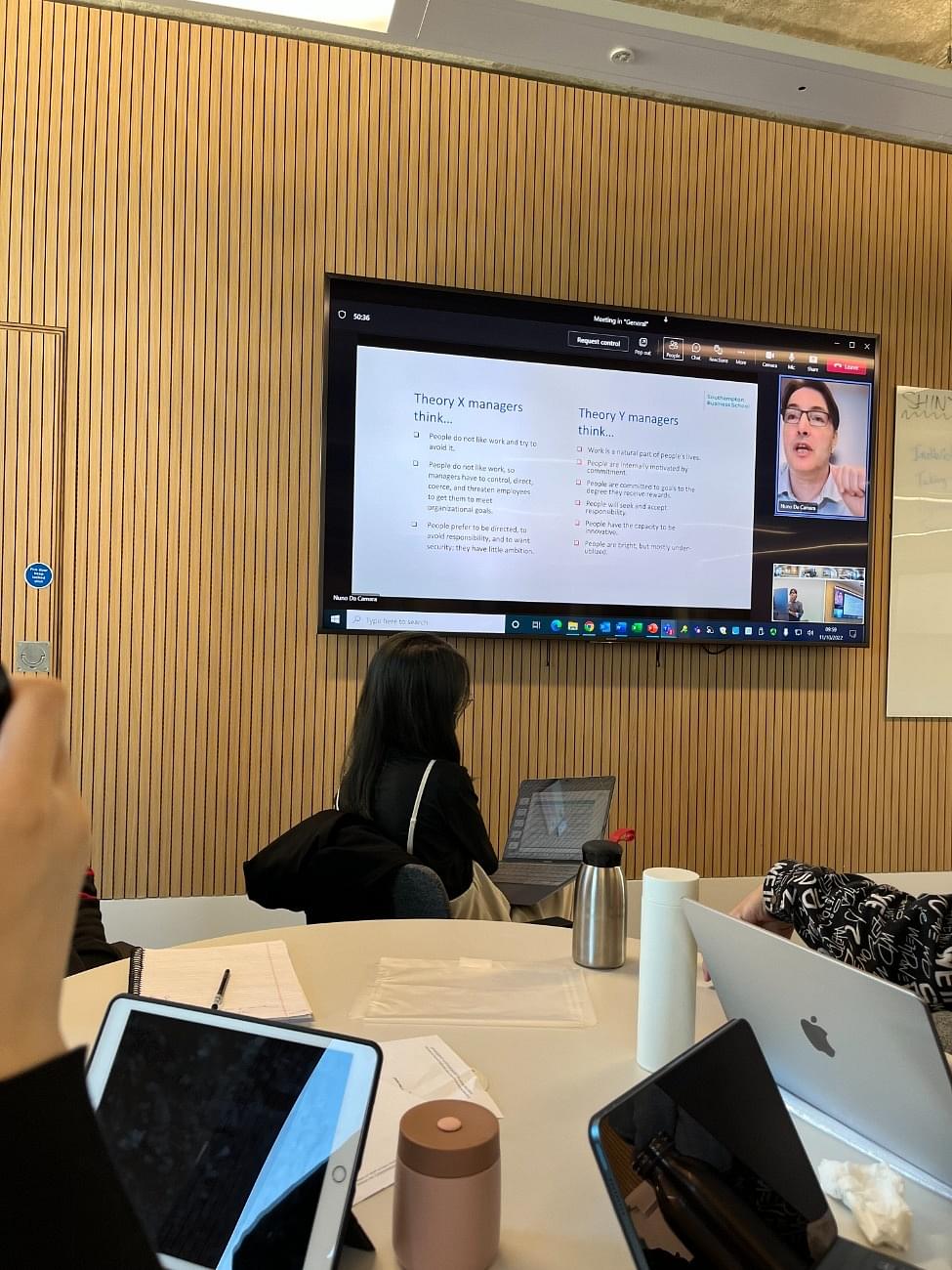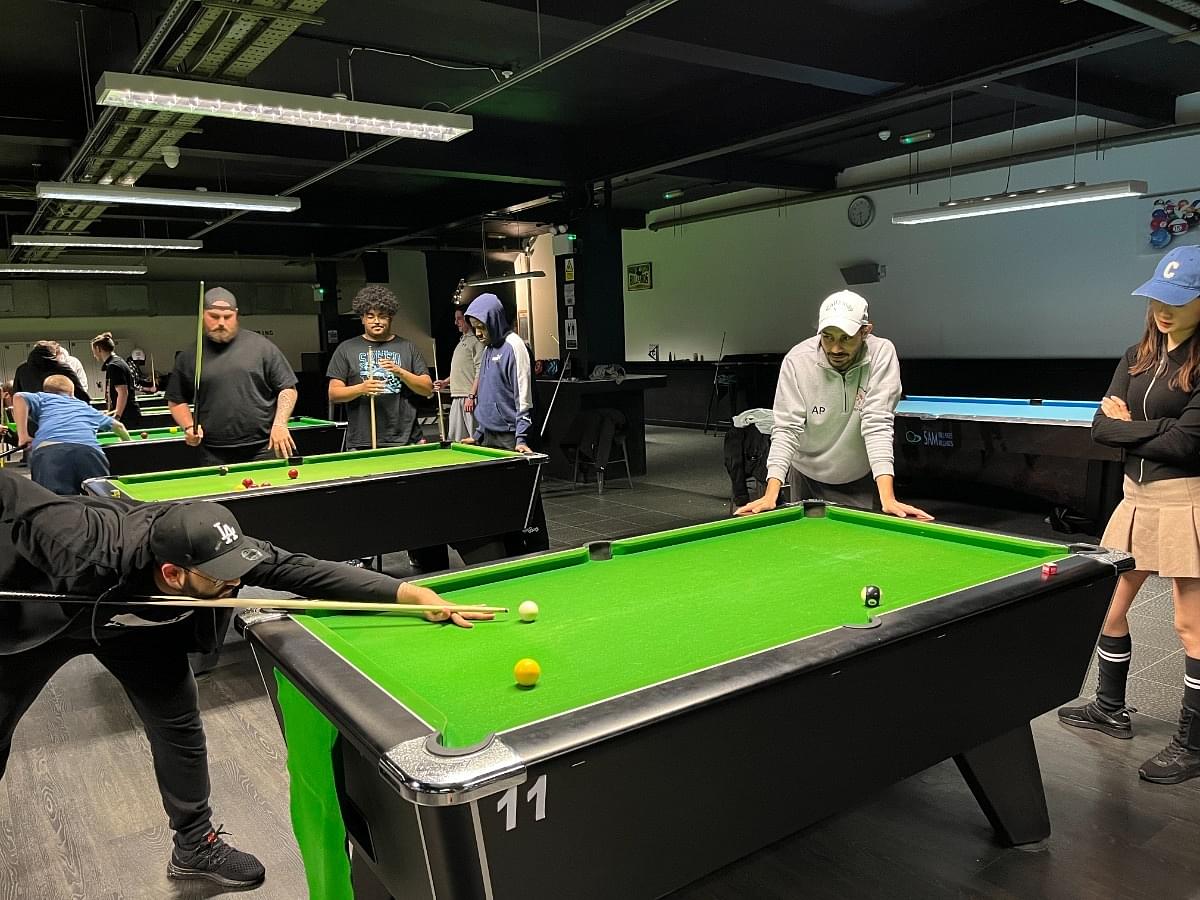What Students Say
Likes
- AMBA & AACSB Accreditation – Your degree has legit global recognition, not just a fancy piece of paper.
- Strong Industry Connections – Solid links to finance, consulting, and tech, but networking is on you.
- Diverse Cohort – Work with professionals from all over the world—great insights, chaotic group projects.
Dislikes
- Not a prestige MBA – If you’re after big-name recognition like LBS or Oxford, this isn’t it. The degree holds weight, but you’ll need to hustle to stand out.
- Networking - There are good industry connections, but recruiters won't approach you.
- Networking isn't automatic. You'll need to go to events and actively network often they also don’t help. It is tough to secure a sponsored job.
Course Curriculum
- UoS MBA is a good mix of theory and real-world applications, most of the subjects require you do a lot of teamwork rather than individual assessment. Almost every subject has two elements: group and individual, which has a 40%- 60% weightage depending on the subject. The program is very fast, you won’t even get to know it has come to an end. In the morning we attend classes, evening the hangout with friends and night the studies and preparations for the next day.
- MBA students don’t get holidays like other programs. For all the coursework the students can take extension but it is not advisable as you will get behind on other subjects. In MBA you also can’t do any part time work, the faculty is very against it. The average class size ranges from 50 to 60 students, with a significant representation of Indian students, approximately 10 to 15 per cohort. We have 9-5 classes everyday and even on saturdays. The course is very demanding.
- Students are even working by themselves on sundays as well. Diverse the cohort, more the chances for you to learn new things and how much you speak to your peers will help you learn a lot. The MBA is more for networking than learning, it doesn’t support jobs as much it makes you ready to run a business, as it is more about forward thinking and strategy.
Admission Experience
- Colleges Applied To:University of Southampton, University of Birmingham, University of Bath, University of York, University of Exeter
- Confirmed Admissions: University of Southampton, University of Birmingham, University of Bath, University of York, University of Exeter
- Rejections: None
- I didn't wanted to pay more than 50 lakhs, although you end up paying much more because of the living costs, visa, additional so always have additional 5 lakhs with the total living cost and the tuition fees.
- I chose Southampton because it has AMBA & AACSB accreditation, which means the degree has real value; it also offers a diverse cohort, good industry connections, and strong entrepreneurship support; and, in comparison to some exorbitantly expensive MBA programs, the cost vs. ROI made sense—good quality without a London-sized tuition bill. The admissions process is fairly standard and includes an online application, essays, recommendation letters, a GMAT/GRE (optional but preferred), and an interview. After submitting, I received an interview invitation, which focused more on understanding my goals and experience than it did on technical details; a few weeks later, I received the offer of admission. For non-native English speakers, Southampton accepts the GMAT, GRE, and IELTS/TOEFL. A good GMAT score is helpful, but it's not required. Strong academic credentials, job experience (often three or more years), and well-written essays are usually what they seek.
- Overall, the admissions process went fairly smoothly, but it was nerve-racking to wait for a response after applying. It was a simple interview, more of a dialogue than an interrogation. Ensuring my essays were distinctive and effectively communicated my motivation for pursuing an MBA and how Southampton fit into my professional goals was the most difficult task.
- Intake and Decision Considerations: Southampton MBA only has a September intake. There are a lot of WhatsApp groups, and meetups organised by various education counselling organisations. They are good for a headstart to make friends and you need a support system when you are starting from zero.
- Admission Process Timeline: I submitted my Application in January, 2 to 4 weeks following submission I received the email to book the slot for the interview. I requested an interview in March. There was a deadline to accept the admission after a month, I had to submit £1000 to block the seat.
- The entire process spanned approximately 2 to 3 months from the application stage to final acceptance.
Faculty
- The faculty-to-student ratio in the MBA program is quite balanced, with around 50–60 students per batch and small-group interactions for certain modules. This allows for decent access to professors, but like any MBA, you need to take the initiative to engage with them. Professors are approachable, and discussions during and after lectures are encouraged, especially for those who actively participate.
- The teaching methodology is a mix of **lectures, case studies, group discussions, and practical projects**. Some professors rely more on theory, while others bring in real-world industry insights. The curriculum provides a solid foundation for the job market, but securing a job still depends a lot on networking, prior experience, and how well you apply what you learn.
- Some faculty members do offer guidance on career paths and may introduce students to industry contacts, but it’s not a structured process. The onus is on students to build relationships and leverage any connections available.
- A few faculty members stand out due to their industry experience and engaging teaching styles. The best ones are those who challenge students to think critically rather than just absorb information.
Campus Life
- Southampton has a lively campus experience with plenty of events, fests, clubs, and extracurricular activities, though how much you engage depends on your schedule. The university has multiple campuses, but for MBA students, most activities happen at Highfield Campus, which is the main one. There's also the Avenue Campus for humanities and Boldrewood Campus for engineering and maritime studies.
- The campus has solid facilities, including a huge library, well-equipped sports complexes, medical services, and career support offices. The Hartley Library is where most students spend late nights before deadlines. The Jubilee Sports Centre has a gym, swimming pool, and various sports courts.
- Southampton has several big events, including the Freshers’ Fair, the Grad Ball, and cultural festivals hosted by student societies. The Students’ Union (SUSU) runs tons of clubs and societies, ranging from business networking groups to sports teams and cultural societies.
- For extracurriculars, you’ll find everything from football and cricket teams to music, dance, and tech clubs.
Part Time Jobs
- Part-time employment opportunities exist both on-campus and off-campus; however, the competition for university-affiliated positions can be quite intense. On-campus roles may include positions at the Students’ Union, university cafes, as student ambassadors, or in social media management, with typical hourly wages ranging from £11 to £12.50.
- For off-campus employment, students frequently seek positions in retail, dining establishments, cafes, and supermarkets, where pay rates are generally comparable to those of on-campus jobs. Southampton offers a reasonable selection of part-time job opportunities, but securing a desirable position necessitates early applications and flexibility in scheduling.
- International students are permitted to work up to 20 hours per week during the academic term and may work full-time during holiday periods. Obtaining an on-campus job can be quite competitive, prompting many students to pursue off-campus employment instead.
- Students get employment in restaurants, cafes, retail outlets, supermarkets, SUSU, the stadium, the event team in the university, etc. During christmas there are a lot of temporary jobs in the market. All jobs have on job training conducted which are payable by your employer. It is a good experience, as working during university can improve your social skills and make you more adaptive to the british culture.
Placement
- MBA is more for people with businesses and higher level of job experience as you are the director, VP of the organisation. It is very different to the MBAs in India here more the experience better for you to do and MBA. A lot of my colleagues have not found the jobs till date and a lot of them have gone back. A lot of people left in the starting of the course as well or didn’t show up. The stress is immerse but you learn to deal with it and in the future nothing can phase you.
- There is a job support but very generic, the job market is very tough globally with very few hiring. It is a tough decision for your future. Approximately 30% of MBA graduates obtain employment within six months of graduation, although this duration may differ depending on the industry and individual work experience. Recent graduates or those transitioning to new sectors may require additional time to secure positions.
- The typical salary range for MBA graduates falls between £35,000 and £55,000 annually, though this can vary by industry. Professionals with substantial experience, particularly in consulting, technology, and finance, often command higher salaries, while those entering unfamiliar fields may start at the lower end of the spectrum.
Accommodation
- I chose to pursue off-campus housing due to its greater flexibility and overall affordability compared to university accommodations. I discovered my residence through online resources such as Unite Students, Capital House, etc. Additionally, some individuals utilize WhatsApp or Telegram groups to network with fellow students seeking flatmates. My monthly rent was approximately £600 for an ensuite room, inclusive of all utilities, situated in the city centre.
- While locating a suitable place was relatively straightforward, securing it proved to be more challenging, as desirable options tend to be taken swiftly. Furthermore, some landlords prefer guarantors based in the UK, which can pose difficulties for international students. In certain instances, offering several months' rent in advance can alleviate this issue.
- For prospective students, I advise commencing the search early, exploring multiple platforms, and reaching out to current students for potential leads. Southampton offers various neighbourhoods, but many Indian students tend to reside in Portswood, Highfield, or Shirley, as these areas provide good transportation links, grocery stores, and reasonable rental prices.
Exams
- In lieu of the IELTS, UOS accepts the certificate showing you completed your English coursework. A CV or résumé, academic transcripts, letters of reference (LORs), a statement of purpose (SOP), and proof of work experience—usually three years or more—must be submitted, to increase their chances of getting accepted, some applicants choose to disclose their GMAT or GRE results.
- After submitting all the documents they send you an email to book an interview, which is an important part of the whole process you get to meet your program manger or Head of MBA or Director of MBA. The interview is between 30 - 60 minutes.
Fees
- Full Breakdown of Fees: The tuition fee for the MBA at Southampton was around £28,000 for international students. Accommodation (if staying in university housing) ranged from £600–£900 per month, depending on the type of room. Student visa fees were £500, NHS health surcharge £470 per year, Travel costs £ 350, Flight costs and personal expenses. Business Trips- £1500
- How Fees Are Charged: The fees are charged yearly quarterly
Monthly Expenses Estimate:
Rent: £600–£900 (depending on whether you stay in university accommodation or rent privately)
Utilities & Internet: £50–£100 (if living in university accommodation it is included)
Groceries: £150–£300
Transportation: £40–£70 (bus pass or occasional train trips)
Miscellaneous (eating out, entertainment, gym, etc.): £100–£250
Total Estimate: £900–£1,600 per month, depending on lifestyle choices.
Scholarship
- Scholarships for the MBA program at Southampton are primarily awarded based on professional experience. Candidates with greater work experience tend to have enhanced prospects of receiving a tuition fee reduction. Although I did not obtain a scholarship, I am aware that approximately 15 out of 62 students in my cohort were successful in securing one.
- The scholarship amounts varied between £2,000 and £7,000, which were subtracted from the overall tuition fees. The competition for these scholarships is significant, and possessing substantial work experience, demonstrated leadership abilities, and a compelling application can significantly bolster your chances. Additionally, some students were able to obtain external funding or sponsorship from their employers.





